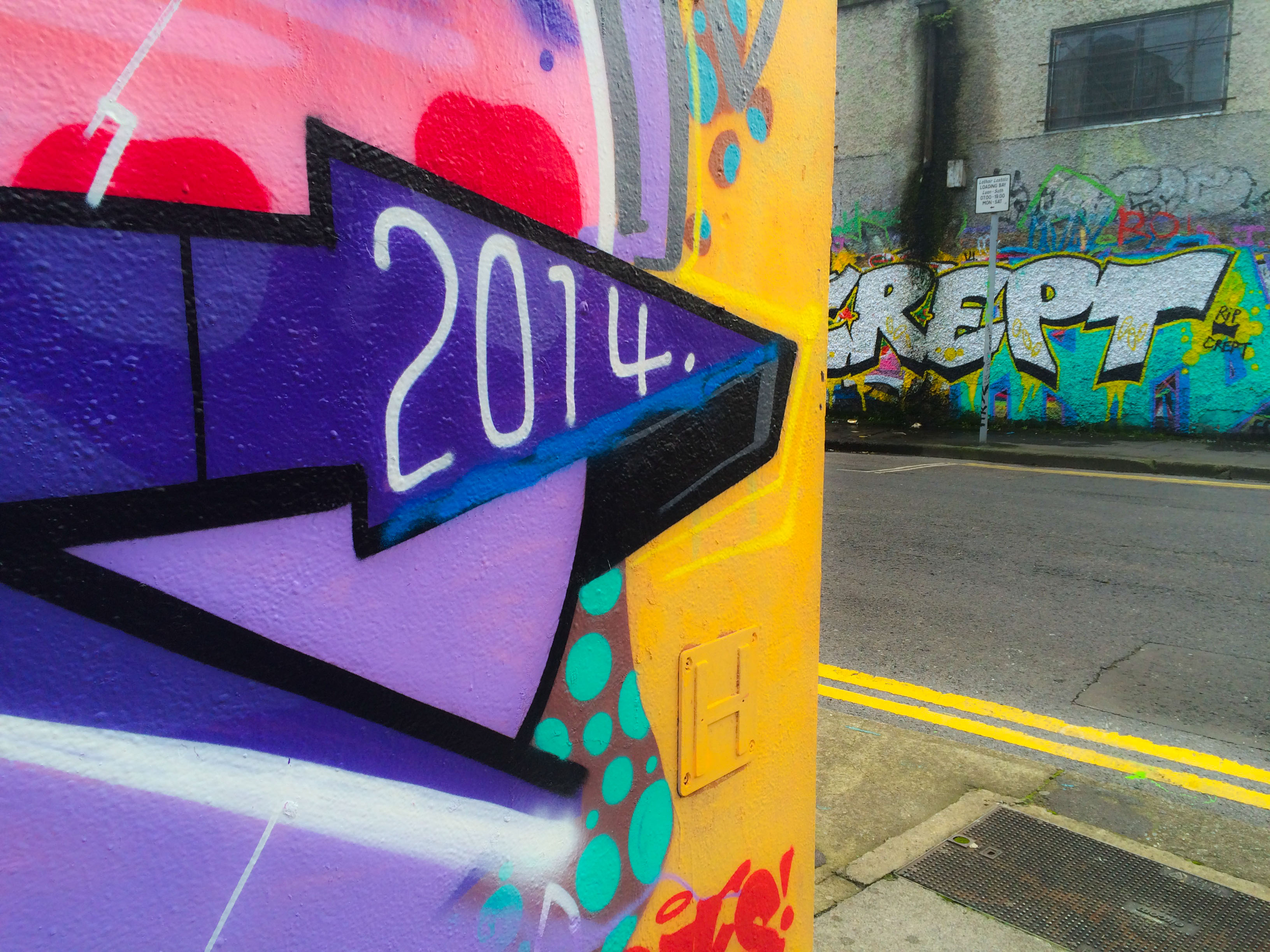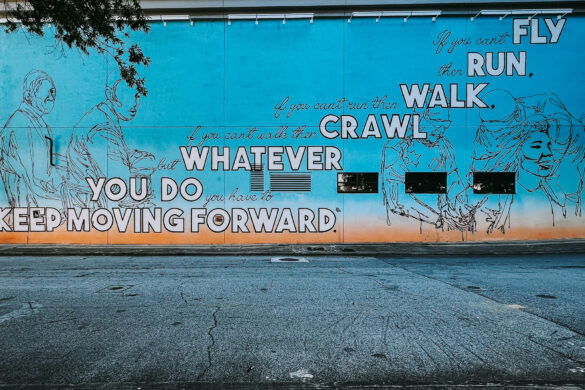Interviews are always different and that’s what makes them interesting. A lot of times, you just sit down and ask a series of questions and get a series of answers, but then I get the special moments where what could simply be a series of questions and answers becomes a genuine conversation where the questions just act as a way to spark discussion. Sitting with James Bay, I was fortunate enough to have one of those interviews. From talk about seeing live music, to giving money to charity through NoiseTrade downloads of his debut EP, and to simplifying the interaction between fans and artists at shows, I had a great time learning about his perspectives on music and how he’s gotten to where he is now. Check out our interview, and head on over to NoiseTrade to grab a free copy of his debut EP!
Arin: How did you get into music and the industry and start making a career out of it?
James: I think that getting into music and getting interested in the industry are things that are quite far apart from each other in the grand scale of how long I’ve been playing, I suppose. Music is… it seems to happen to so many of us when we turn about, maybe 10, 11, or 12 years-old. Suddenly, music is a lot more powerful than it was before. Me and a million other people have always loved music since we were little kids. I mean, I would listen to Michael Jackson, Bruce Springsteen, or even just hearing that music when I was 5 years-old and loving it. But then, it just takes on this whole other form.
For me, I was probably about 11 years-old. And not only did I find myself just listening to more and more music, but [there was] this guitar that was just high up in a cupboard – or maybe in the attic, it was one of the two – and I was aware that it was there and suddenly I really wanted to get it down. I really wanted to give it a go. It was all rusty and kinda ‘not broken, but broken,’ and that’s when I finally pulled it down and just [got] that magical feeling when you start to learn an instrument. It varies for everyone, I guess, but that was one of the moments where I thought, ‘oh wow this is incredible.’ It was when I first started playing things back successfully. Like, I could hear, I could make a tune, I could play things that were musical as opposed to just sort of craziness and rusty chords and stuff. That was when I sort of went, ‘oh okay yeah I’m gonna give this a go, this feels pretty special, and I don’t wanna stop doing this.’ So on from that there’s years of – I was learning other bands music and starting to get into making things up that were all my own and all that stuff and that remains now – that just chasing and wanting to express yourself and wanting to be individual on your instrument and with lyrics and all that stuff. That remains and that started, maybe, [when] I was a little older than 12 and then on from that grows this need to play in front of people because the reaction you get when you play live, it’s just so cool.
A: It’s my favorite thing to see. It is just so special.
J: And I think audiences and performers alike kind of understand it because we all feel a pretty similar thing. It’s a pretty exhilarating and crazy feeling and there’s nothing else like it. I got a taste for that, and I guess for a lot of people – not everyone, but for me – that naturally led to, well, [the thought that] I could kind of go and look for some sort of actual job or maybe I could give this a go and just sort of keep doing it and ignore that guy on my shoulder saying ‘you need to get a job, you need to get a job, you need to find something “real,”’ and so I just kept doing it. There’s always gotta be a little bit of luck involved and some cool people who are at interesting places in the music industry ended up hearing my music and it all went from there and now I’m at this place. It all comes down to how much I love doing it.
A: Who are some of your biggest influences and where do you pull from when creating your sound?
J: I’ll try and pick some from the never ending list [laughs]. I mean Ray LaMontagne is a great influence, he’s an amazing writer. And – as massive as she now is – from the beginning I’ve loved Adele’s music and I love her even more for being this world wide success now. And Fiest, she’s incredible, everything she does, and I just love how left of center she is. All the coolest sounds and the most out there [and] different lyric approaches to something. Ben Howard’s another one, he’s just the coolest thing in the world. So there’s lots, and I love all the older stuff like The Stones and all those bands as well.
A: I found out about your music through NoiseTrade which I think is a really cool platform because it allows you to find new music and go back and tip the artist if you enjoy it.
J: That’s the coolest thing and I really enjoy that my tipping situation on there is that if you wanna give some money, it all goes to WaterAid. So I’m not actually taking any money from that. It all goes to charity and at the moment, for me, it’s just about getting some music out there.
A: Explain a little more about WaterAid and the mentality behind picking that.
J: I think the mentality behind it was [that] it was something sort of good and honest to do with the proceeds because, like I say, all I really want out of this at the moment is people to hear my music and get some feedback and hopefully get some fans. With something like that, there are others as well that are just as important, but WaterAid was just the one [charity] I wanted to go with. I think it’s a very important cause. At the end of the day there’s people out there that don’t have clean water and it’s one of the most important [things]. This all sounds a bit big and a bit preachy and stuff, but it’s a very important thing. We’re made up of a lot of it [water] and we need it and that was the one I chose, and I just wanted people to hear my music; it’s not about making money at this stage. This EP isn’t about that, so that was the reason behind it.
A: With your fan base growing, what it is like after a show to see more followers on Twitter or likes on Facebook basically in real time?
J: In real life, it’s the most amazing – the numbers online – because it’s something you have to be careful with and it’s just not worth anyone’s time, but at the same time it’s not like it’s not happening and, as it does, it’s a great feeling to know that someone’s plugged into you, almost literally, online and wants to be part of the whole thing. That’s an amazing feeling. Particularly coming off stage after shows, I like to go out and I like to talk to people and see what people thought and the feedback’s been amazing and I really feel like I’m building a fanbase out here which is – this is America – it’s an amazing feeling to be doing that. The musical culture over here means loads to me, it’s just the coolest thing.
A: As a photographer, I get to have a really cool vantage point for parts of the show where I can watch the interaction between an artist and the crowd happening, but as the artist, what is it like for you to watch the crowd get more and more into the music as the night goes on?
J: It’s an amazing little journey every single night. It varies in how it goes and one thing that’s true is that you learn something every single time about the music [and] about what you’re doing. It’s really interesting and it’s a lot of fun. On one hand, as fun or as hard as it can be to bear your soul, you’re doing that. You’re playing your songs [and] you’re giving people a look into quite a personal place, but hopefully at the same time, you’re just sharing it with them and they’re feeling the same thing. Like I say about the whole performing experience, there’s nothing like it, it’s incredible. So it’s just this kind of big WOW moment to just connect on that scale. If it’s you and 10 people or you and 200 people or more, it’s fascinating. It’s really interesting and, most of the time, it feels great. So far, it pretty much always feels great and I’m glad I can say that.


